The genesis of Uttara, a Hindi women’s magazine based out of Nainital, is set against the backdrop of the political movement demanding statehood for Uttarakhand. The Anti-Liquor Movement in the state (1980s) and the Uttarakhand movement (1990s) are key precursors for the foray of women in this region’s politics. Women have contributed significantly to these political struggles and the Founders of Uttara acknowledge this period as the birth of the vision for this magazine. The initial tasks of registration, finding funds, and managing the logistics of magazine publication were gruelling, but the Founding Editors mustered through these challenges because of their grit and resolve to have a reading and writing platform focused on regional women’s issues. Dr. Uma Bhatt, a Hindi Scholar, is one of the Founders of Uttara. A native of the state, she was born in Bishar village of Pithoragarh district. She completed her BA from Pithoragarh and was sent to Nainital for her MA where her brother resided at the time. Determined to be financially independent, she started teaching at the Government College in Kotdwar after her post-graduation. Bhatt joined Kumaon University in 1977 and completed her Ph.D. in Hindi with the thesis titled Brij Bhasha me Krishnakatha ka Vikas (The Evolution of Krishnakatha in the Brij Dialect). She reminisced about her interest in literature from a very young age when she would read books available at the village library. In her youth, her initiation into a politically charged public life came with the feisty speeches she delivered during the Anti-Liquor Movement in 1984. Bhatt has also co-edited Uttrakhand ki Bhashayein (The Languages of Uttarakhand) published under the People’s Linguistic Survey of India (PLSI), which was launched in 2016. This Survey led to the inception of another linguistic project to create a glossary of terms of the languages identified in the Survey. She again contributed as an Editor for the Jhikkal Kamchi Udayali: Uttarakhand ki Bhashaon ka Vyavharik Shabdkosh (Jhikkal Kamchi Udayali: A Glossary of Languages in Uttarakhand). ‘Jhikkal Kamchi Udayali’ translates to a ‘basket of languages’. These words are from three of the thirteen languages recognized under the PLSI Survey.
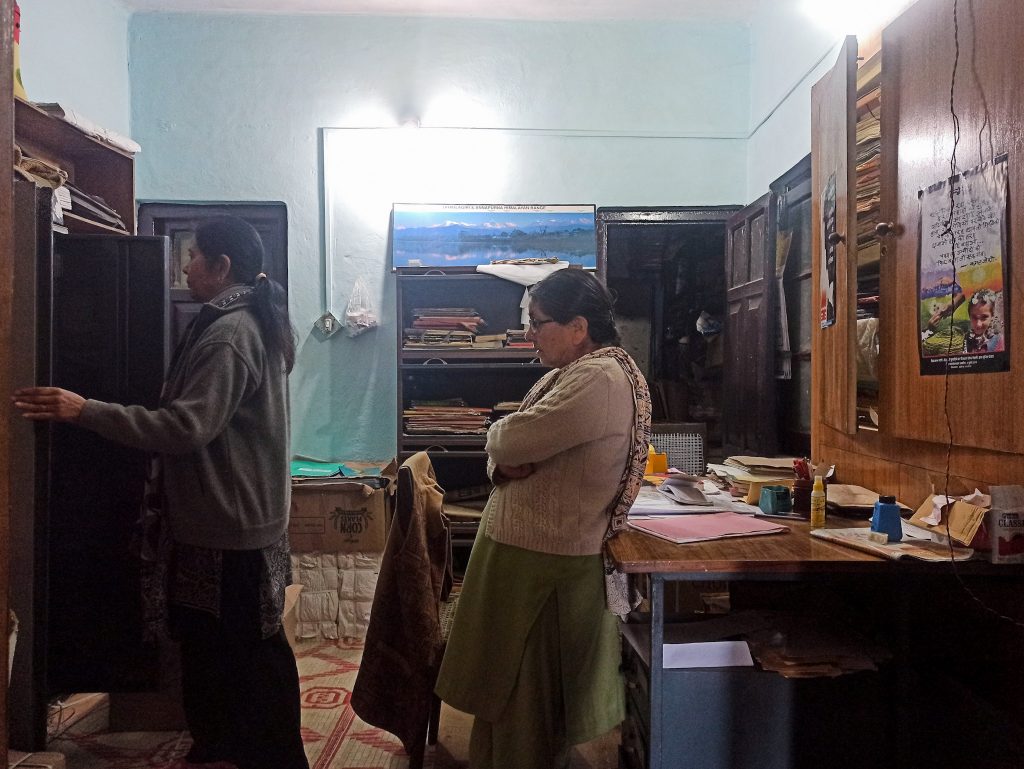
When the Anti-Liquor Movement of the 1980s decelerated, the energy of the movement led the Founding Editors to shift focus towards women’s issues in the region. The need for a women’s collective became clearer to all of them. In my conversation with Uma Bhatt and Sheela Rajwar, it was evident that incidents of gender-based violence had deeply impacted them as they recalled in grave detail many such instances and murder cases that took place decades ago. These incidents remain fresh in their memories. A women’s collection called the Maitree Mahila Sangathan was established in 1993. The Sangathan addressed gender-based violence in and around Nainital. It created pressure on state officials to pursue investigations, reported incidents, followed up cases in Court, and mobilized people to protest. In its active and vibrant years from 1993 to 2000, the Sangathan’s efforts as a pressure group drew many seekers of justice. Unfortunately, Maitree Mahila Sangathan’s efforts have not been documented.
Apart from these path-breaking on-ground endeavours, taking inspiration from the approach of a Delhi-based magazine, Manushi, Uttara was evolving into a crucial reading and writing platform. Its vision was to highlight women’s struggle at the grassroots and to bring home ideas and inspiration from across the globe. Additionally, a special emphasis was given to the values of working as a collective, coming together with ideas, and supporting each other. This value of ‘collective effort’ is the heart of Uttara. In fact, the Editors have consciously published this magazine as a collective effort since its onset. The testimony of this is the mention of four Editors during the registration: Basanti Pathak, Kamla Pant, Sheela Rajwar, and Uma Bhatt. Their determination to make Uttara a magazine for women and by women led them to set up everything on their own. As women, making the rounds of offices to get registered or traveling to distant areas to report cases came with its own set of challenges. In addition to logistical challenges, they also had to deal with people’s discouraging comments. At one point, they were even labeled a ‘ghar todu sangathan’. They acknowledged that in their journey other women actively supported their cause. In contrast, men encouraged them but when it came to providing support they shied away easily. But they do not fail to recognize the support and guidance they received from each and everyone since the very beginning. And today Uttara has been publishing women’s issues of regional and national importance, poetry, fiction, and academic pieces since 1990. The magazine has ushered in a culture of reading and writing. Uttara covers gender-based socioeconomic struggles of the region, op-eds on local and national politics along with interviews and biographical pieces on local women icons. They have other publications as well: Gangotri Garbyal’s book titled Yaadein, 1997 (Memories), a poetry collection Virasaton ke Saaye se Nikal kar, 2003 (Breaking the Shackles of Tradition), and another collection Ankit Hone do unke Sapno ka Itihas, 2015 (Inscribe the History of their dreams). With changing times, the Editors have also been facing various challenges. They expressed concerns about not being able to get more young people involved in the magazine. Although, the Editors are actively responding and adapting. With COVID-19 and the massive shift to the online space, they launched their website in 2021.
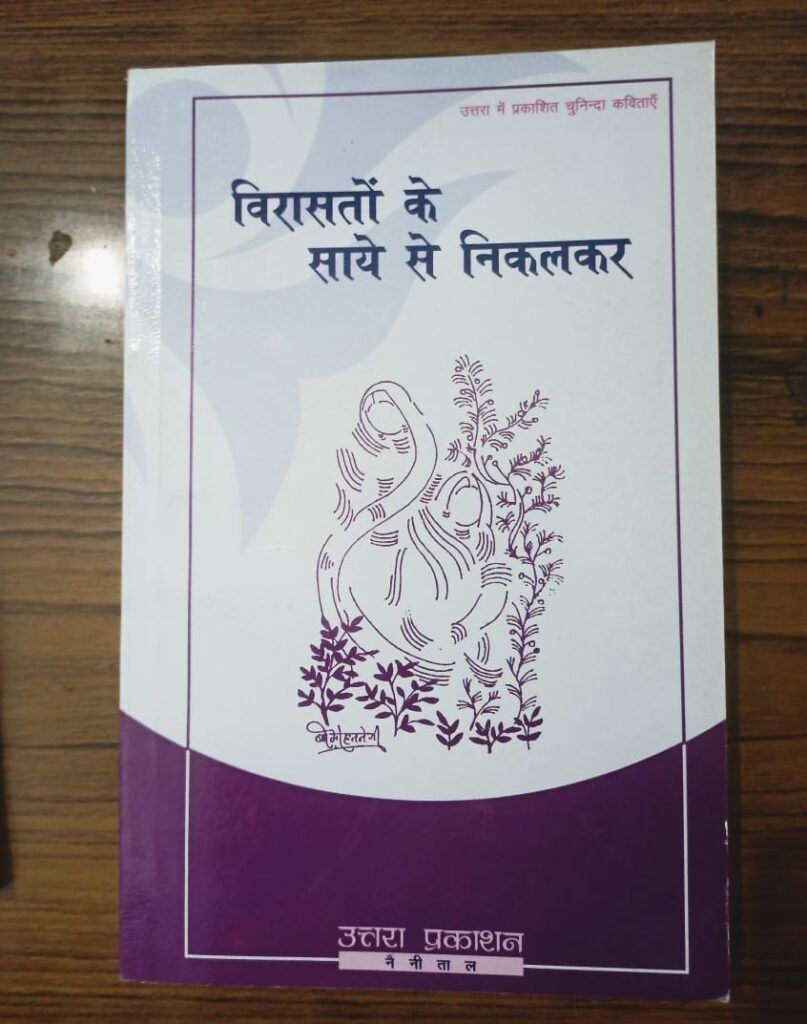
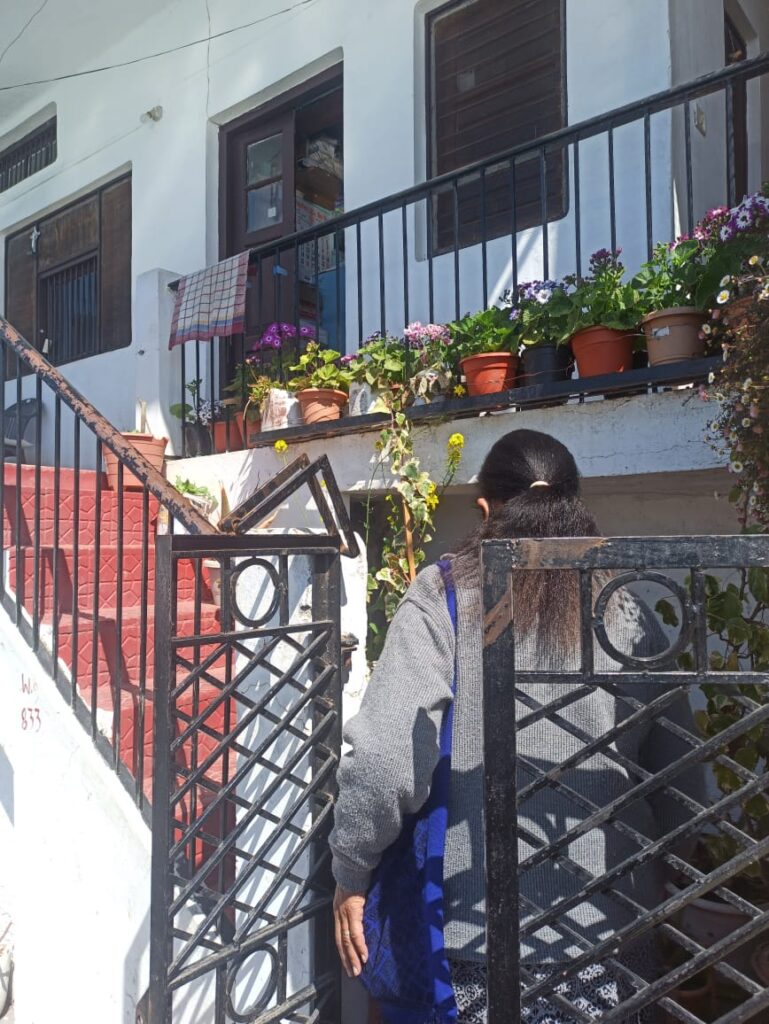
When I first started researching Uttara for a College assignment my endeavor led me to Nainital to meet Uma Bhatt and Sheela Rajwar. I am grateful for their warm welcome and those few hours of conversation. Their dedication and story enabled a connection to my roots and opened my eyes towards what we usually overlook as we migrate to metropolitan cities: every pocket of India has so much to say and offer. But, unfortunately, our attention more often than not remains fixated on the metropolitan. I understand that the opportunities these cities and spaces provide cannot be overlooked and people have to migrate out of necessity as well. But I believe it is important to not lose sight of what we leave behind and preserve the rich diversity of culture, thought, and experience. I instantly got the magazine subscription and found it to be a valuable way to start a conversation with my mother on several issues. My grandmother and maternal aunt were also delighted in this perusal as they found something to relate to and embraced reading about their culture in times when we all find ourselves growing distant from it. The magazine has something for everyone. It has brought together ideas and a way of life along with creating a platform for the women and culture of Uttarakhand to claim a space and be seen.
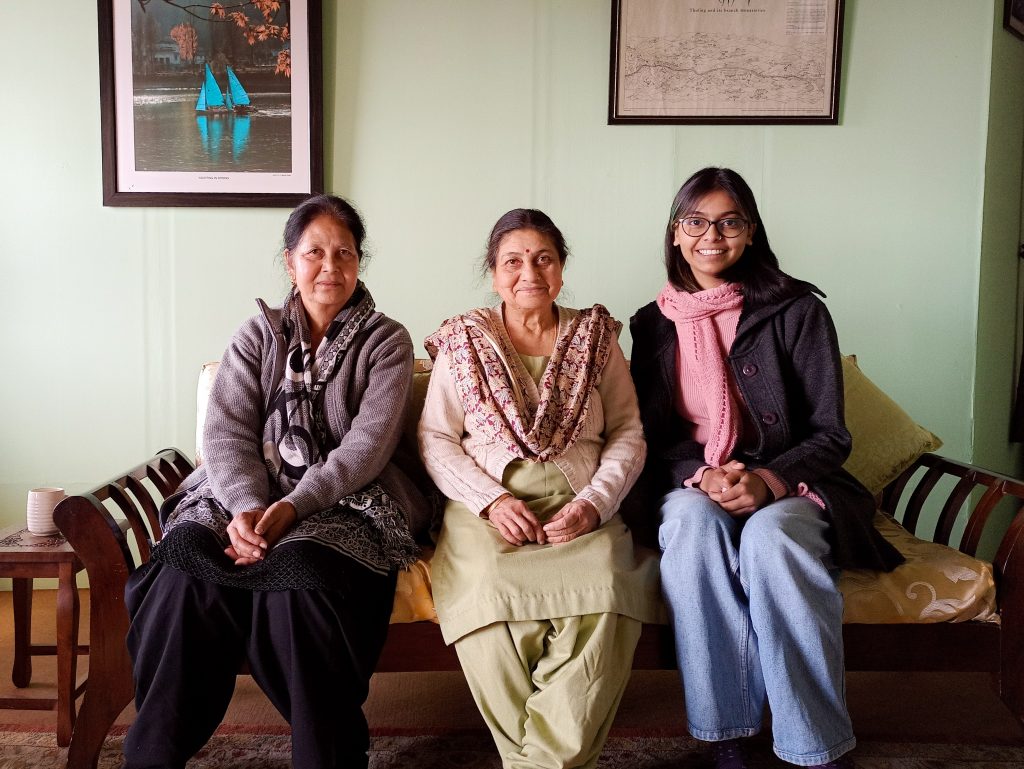
This article is based on the author’s conversation with Uma Bhatt and Sheela Rajwar on 25th February 2021.
For more details, visit Uttara’s website here or contact them at uttara12@gmail.com.
Written By: Akanksha Bisht
About the Author
Akanksha works as a Research & Operations Associate at TARA. They completed their MA in Law, Politics and Society from Ambedkar University Delhi and BA (Hons) English from Indraprastha College for Women. In their free time, they enjoy reading, crafts, photography and crocheting.
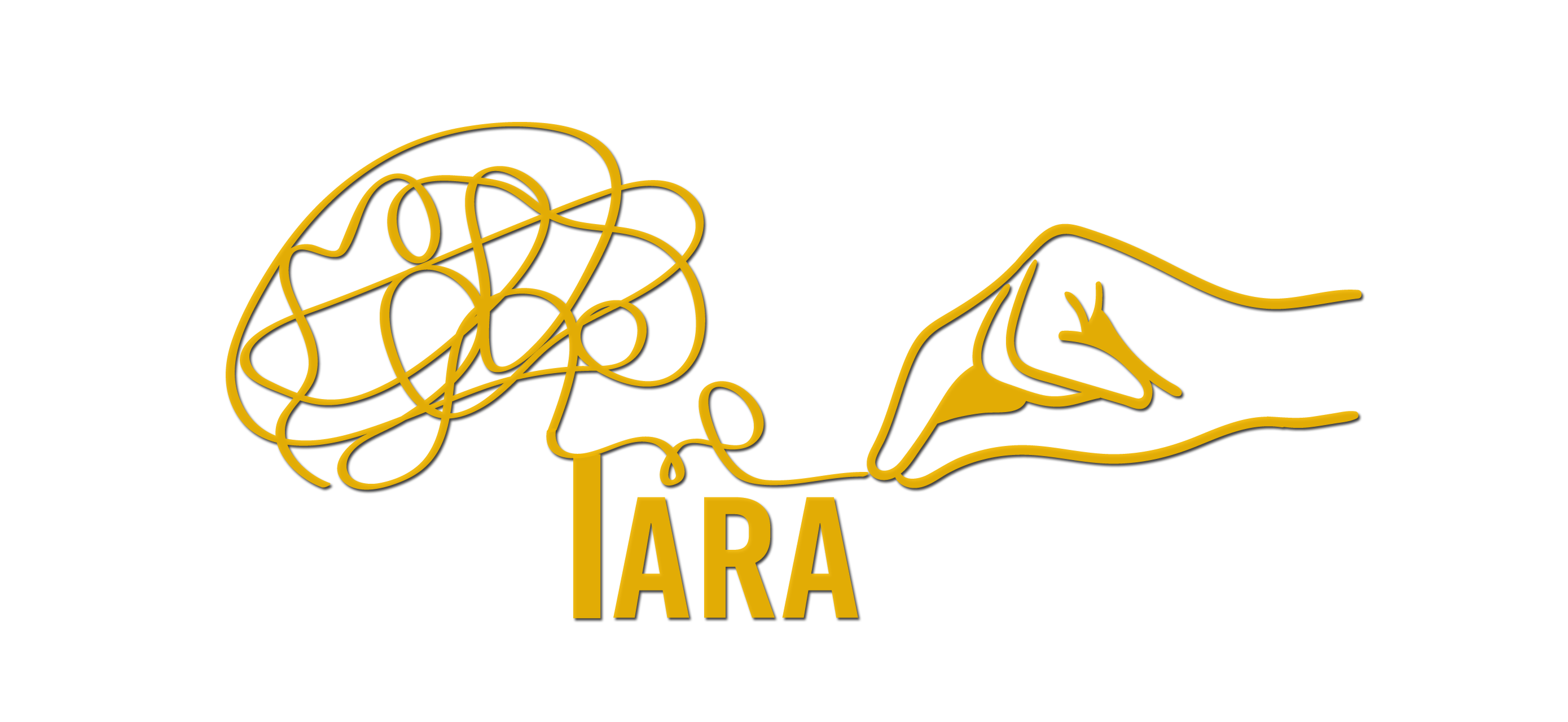
0 Comments